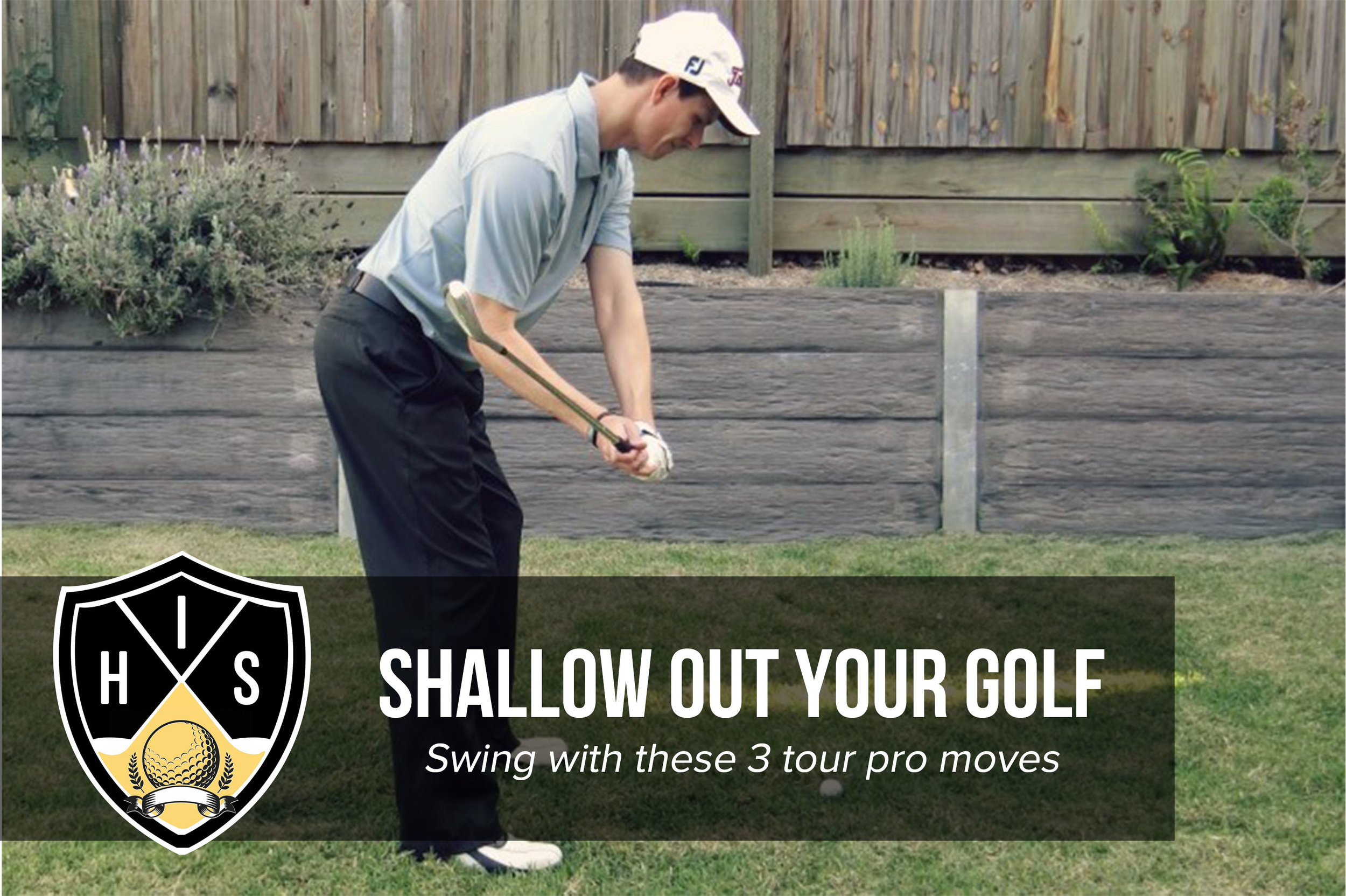Golfers need to work on the mental game of golf
Investigating methods to improve golf performance is often present in the media, for example, a recent edition of Today’s Golfer magazine included a review of fourteen different wedges and professional tips on wedge technique, scoring tips provided by Henrik Stenson and the coach of world number one Rory McIlroy. A review of golf drivers, categorising which models produce the highest distance for amateur golfers is also presented in the latest edition of a lifestyle magazine, Men’s Health. Whilst considering the benefit of the correct technique and the right golf clubs is very popular, the discussion of the mental game of golf pales in comparison.
It is likely that at some point in the near future a member of any weekend fourball will be boasting about new clubs which will add 20 yards to their game, a conversation about improved confidence on short putts due to the use of imagery, however, is less likely to occur.
The use of sports psychology has become increasingly popular in the professional ranks over the past decade, yet it remains an enigma for many recreational amateurs.
Players searching to enhance performance should understand that whilst performance may improve, adopting sports psychology creates increased awareness of principles, knowledge, and techniques that can address any issue in sport.
By shying away from the implementation of sport psychology strategies, players are potentially missing out on the opportunity to improve their play and increasing the level of enjoyment they get from the game.
>> If you like this, you'll also like: 10 Proven Mental Golf Tips to Slash Your Current Golf Scores
3 SECRET MOVES I WISH I WAS SHOWN WHEN I FIRST PLAYED GOLF
Why it's important
Professional sports psychologists in the Journal, Psychology of Sport and Exercise, summarise that the use of sports psychology to improve the mental game of golf is most beneficial when the theories are applied in an appropriate method to meet client needs. Therefore, a key practitioner approach is to ensure any strategies adhere to matching the hypothesis i.e. they directly focus on areas for development.
Completing assessments that quantify cognitive strengths and areas for development such as confidence, motivation, and mental toughness are all available in the publications of acknowledged sports psychologists.
Similar assessments are free and readily available online, however, the content of such documents may vary dramatically in quality.
Areas for development must be identified before strategies to make improvements can be adopted.
This can be done in several ways, one method is to break the game into three sections: practice, pre-round, and on-course.
Here are 3 critical areas where your mental game of golf can be enhanced to reach your potential.
Make your practice session count
It is probably safe to assume that most amateur golfers have enjoyed the feeling of being on a golf course when they are relaxed and playing well on the course, yet most will admit they find this an elusive state of mind. Renowned sports psychologist Bob Rotella discusses this as a common issue for golfers of all levels, who are aware of a positive feeling which is elusive and often replaced by a negative distrust, and suggests players should develop sound technical fundamentals in practice.
This was supported by the commentator Mark Roe, who outlined that the golf choke phenomenon which debilitates players as a result of an alteration of technique e.g. a shortening of the backswing during the pressure of competition caused by extreme levels of stress applied during competition.
The best way to practice
This can be addressed during practice, but only if practice sessions consistently have a technical task-focused goal e.g. accelerating through impact to create a positive golf putting stroke. This is very effective as players are much more likely to perform under pressure when they are used to focusing on a simple technical element.
To take this concept further it is often advised that players add an element of competition to their practice, for example taking on a friend to see who can pitch the ball closest to an 80-yard pin on the driving range.
This not only adds fun elements to practice but also provides a level of stress inoculation which can be taken onto the course.
Practicing with a friend is also a good way to improve motivation, going to a driving range on a cold winter’s night is often far more enticing when it has a competitive social aspect.
watch the video below that demonstrates a great mental golf tip from mental game coach Bob Rotella:
Pre round golf keys
Understanding mental toughness has become a key aspect of sports psychology over the past decade. During an interview with Colin Montgomerie reflected on several missed opportunities to win events and highlighted that many of his losses were not due to a single bogey. They were as a result of bogeying several more holes later in the round due to being agitated by the original mistake.
Embedding pre-tournament preparation which gives time to consider the positive and negative scenarios players may encounter in competition can be beneficial to performance.
It is quite possible that a gust of wind or bad bounce can lead to a double bogey on the first hole, alternatively, an early stretch of good play could yield several birdies.
Taking time to consider these scenarios pre-round will reduce some of the shocks when they occur during the round.
This strategy doesn’t mean sitting in a dark room for several hours each day trying to predict the future, however, allowing time spent warming up to realise events may take place that could affect the whole game if not addressed.
In an applied setting when warming up on the practice putting green, imagining executing a putt for birdie and remaining calm and also for a bogey following a poor stroke and not being agitated encourages players not to make technical mistakes due to the context of the shot.
This approach also decreases the likelihood of making rash decisions on the course which can again have a negative effect on performance.
What's your goal today?
Multiple studies published in Anxiety, Stress & Coping: An International Journal, investigating on-course performance have identified that high levels of anxiety can have a dramatic detrimental impact on physical performance. It said a manageable amount of pressure is often key to successful play (research shows elite players will have a far greater tolerance to high-pressure situations).
Setting realistic goals is a key strategy to create a suitable environment, ideally, these will have two focus points.
Firstly, a focus on the outcome e.g. scoring 37 Stableford points for a handicap reduction or trying to win a match play event by the 15th hole.
Secondly, (and more importantly) these goals will always have a simple task focus; such as completing a full backswing, this will encourage players to remain calm and focus on the key technical tasks required for good play during competition.
Benefits of a pre-shot routine
A pre-shot routine is also recommended to provide a consistent approach to encourage players to remain calm and positive during the round. Having imagery of past experiences of well-executed shots can be beneficial during a pre-shot routine, as can physical acts such as taking several deep breaths before even considering striking the ball.
Introducing a pre-shot routine can also address issues related to concentration, players are unable to sustain concentration for several hours and benefit by utilising a method to switch from relaxation to concentration.
Following Louis Oosthuizen’s 2010 Open win, a great deal of attention was paid to a red dot on his golf glove.
He explained that red was a colour he associates with focus and the dot encourages him to consider the fundamentals of his swing when playing shots.
Whilst identifying a trigger is useful, understanding individuals who will benefit from varying approaches is also essential.
Other possible options include a verbal trigger e.g. the word “play” or a field of several paces around the ball which creates a zone of concentration.
What you need to do
It is essential for players to understand that embedding psychological strategies can benefit performance but require regular use if they are to be beneficial.
Just as a player needs to spend time working on their technique to improve their driving, iron play, and short game.
Commitment is also required to the cognitive techniques and the mental game of golf which over time can increase confidence and allow players to reach their full potential.
Written by James Levy from GolfSupport, one of the UK’s leading international golf equipment suppliers.
Supplying quality golf equipment from the top brands and excellent service.
IF YOU HAVE ANY QUESTIONS ABOUT THIS POST PLEASE LEAVE A COMMENT BELOW, AND DON’T FORGET TO SHARE WITH YOUR GOLFING MATES AT YOUR FAVOURITE SOCIAL MEDIA ICON TO THE LEFT.
This post may contain affiliate links. I make money from these affiliate links to keep the site free for users, and it is no cost to you.
















